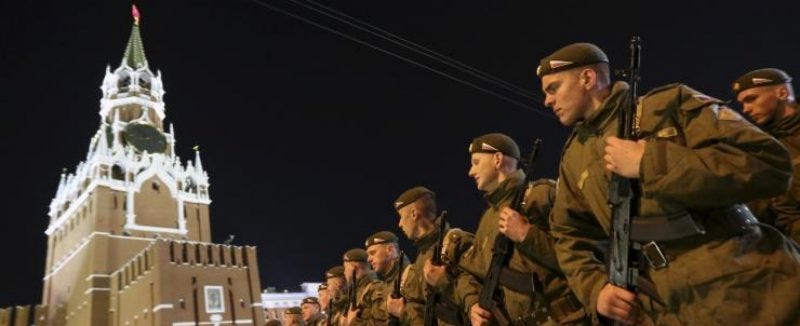Lithuania sends elves to fight Russia’s internet trolls
Click to read the full story: Lithuania sends elves to fight Russia’s internet trolls

President-elect Donald Trump may choose to believe that Russia isn’t a threat to America’s online security, but Lithuania is being much more realistic. They’re using something that many online gamers are familiar with: Elves.
Elves against trolls – it sounds like something out of “The Lord of the Rings.” But to Ricardas Savukynas, the battle he’s fighting is no fantasy.
The 43-year-old business consultant and blogger is part of an informal internet army of Lithuanians trying to counter what they describe as hate speech and pro-Russia propaganda.
“I am just a regular guy from Lithuania, a citizen, who once noticed that Russian propaganda is being spread in this country by huge numbers of groups on Facebook,” he told media over tea at a restaurant in Vilnius’ old town. “Seeing this I thought that it cannot be a natural thing.”
Savukynas’ fellow volunteers – who’ve dubbed themselves “elves” – patrol social media, coordinating their actions through Facebook or Skype to expose fake accounts. On a busy day, Savukynas said that fellow elves report as many as 10 or 20 to get them removed. He himself focuses on writing, maintaining a personal blog devoted to, among other things, deconstructing Soviet nostalgia or pulling apart conspiracy theories.
The elves do a decent job of “pinpointing some manipulation and some social networking sites,” said Nerijus Maliukevicius, a researcher at Vilnius University’s Institute of International Relations, who studies the role of media during times of conflict. But in a telephone interview, Maliukevicius said that Lithuania needs a complex counterstrategy to beat what he describes as Kremlin propaganda.
“Elves are just one bit of this,” he said.
Talk of Russian interference is bubbling on both sides of the Atlantic in the wake of the recent U.S. election, which propelled Russia-friendly candidate Donald Trump to power amid allegations of Kremlin interference. Earlier this month, Germany’s intelligence agency accused Moscow of trying to destabilize the country with propaganda and cyber attacks before its general election planned for next year.
Lithuania, which like other Baltic nations was long subject to Moscow’s rule, feels those concerns more keenly than most – all the more so after Russia annexed the Crimean Peninsula from Ukraine in 2014.
And the elf versus troll war on Facebook is just one battlefield. News websites and broadcasters have also been drawn into the mix.
“We recognized, especially recently, that we have a pretty huge and long lasting disinformation campaign against our society,” said Tomas Ceponis, an analyst for the Lithuanian military. He said the power of propaganda was harder to quantify than tanks or planes, but it was clearly aimed at “really a very huge variety of targets.”
Delfi, one of the main news sites in Lithuania, was one of them. It found its comment sections filling up with pro-Russia posts in the lead up to the Ukrainian confrontation, said Monika Garbaciauskaite, the editor-in-chief, and now has full-time staff deleting the most extreme messages.

The hostile propaganda has led to more aggressive action from both sides.
Lithuania’s leading commercial news channel TV3 has been repeatedly targeted by hackers who compromised the group’s networks three times, according to Sigitas Babilius, TV3’s head of news. Last month, Lithuania banned Russia’s RTR Planeta channel until February after a Russian politician made anti-U.S. comments deemed as “incitement to war, discord and hatred.” Similar three-month bans on Russian state-owned channels have been ordered in previous years.
Lithuania, meanwhile, has launched a campaign on television urging citizens to report any suspicious activity – on the street or on the web.
The moves rankle Moscow’s representative to the tiny NATO nation.
“I do not think that sticking a propaganda label on another’s point of view is right,” Russian Ambassador Alexander Udaltsov told the media. “It’s always better to use counterarguments to prove your truth, but unfortunately our Western partners lack these arguments and continue with bans of Russian TV stations.”
Lithuanian Foreign Minister Linas Linkevicius makes no apology for the bans.
“A lie is not an alternative point of view,” Linkevicius said. “One can say ‘it’s freedom of speech, everyone can say whatever he wants.’ Of course, I agree. But if it’s (a) resourced propaganda machine brainwashing people, it’s not just an alternative point of view. It’s a weapon.”
The post Lithuania sends elves to fight Russia’s internet trolls appeared first on Movie TV Tech Geeks News By: Jeffrey Lang


